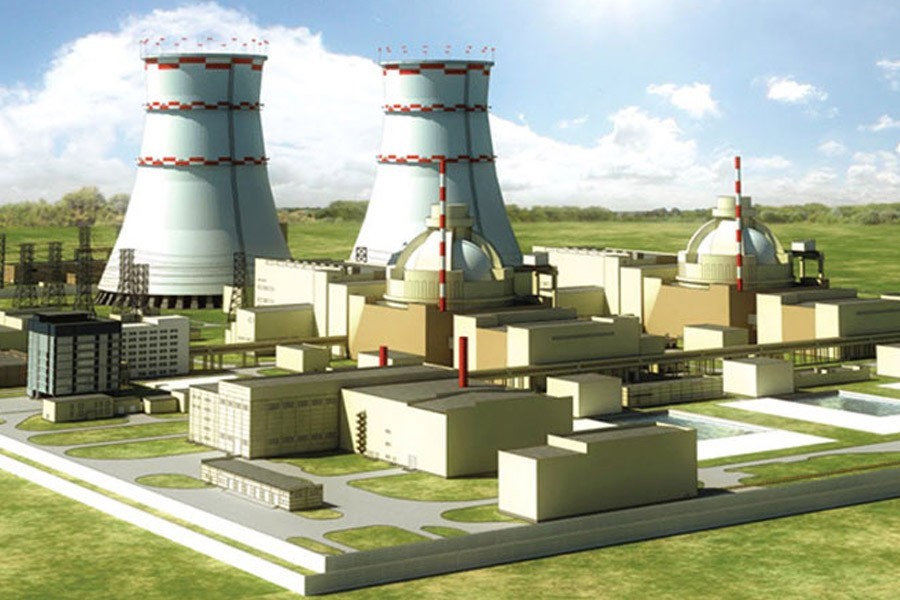Main concrete works of auxiliary reactor building at unit-1 of Rooppur nuclear power plant (RNPP) has been completed eight months ahead of schedule.
According to Rosatom, the Russian contractor of the plant, the building is a part of the 'Nuclear Island' and is designed to house process instrumentation and control devices, says UNB.
The construction time period of the building was reduced by 241 days thanks to logistic processes optimisation and were timely supplied with the required resources like materials and tools.
The average volume of concrete laid by specialists of NIKIMT-Atomstroy accounted for 1,600 m3 per month instead of schedule 1,000 m3, it said in a statement.
"The pace of work, achieved by the specialists of NIKIMT-Atomstroy, while satisfying all the stringent quality requirements, demonstrates the highest potentials of Rooppur NPP construction workers", said Alexey Deriy, Vice President of ASE and Project Director for Rooppur NPP Construction.
With such high professionalism of our employees, we safely can say that construction of Bangladesh's first NPP will be completed within the scheduled dates, despite a range of challenges including Covid-19 pandemic and complex international situation, he added.
Reduced time period in construction allowed reducing the cost, first of all, by means of saving the semi-fixed part of overhead costs and making a significant number of highly qualified labour resources available ahead of schedule, who have already been engaged in performance of other production tasks.
Rooppur NPP will be equipped with two Russian VVER-1200 reactors with a total capacity of 2,400 MWe. This is an evolutionary Generation III+ design that fully complies with all the international safety requirements. Engineering Division of Rosatom State Corporation, Russia is the General Designer and General Contractor of the project.
According to Bangladesh Atomic Energy Commission (BAEC), the implementing agency of the project, the first unit of the Rooppur NPP was scheduled to come into operation in 2022 and the second unit in 2024.
But later the first unit's operation was deferred for 2024 and the second unit for 2025.


